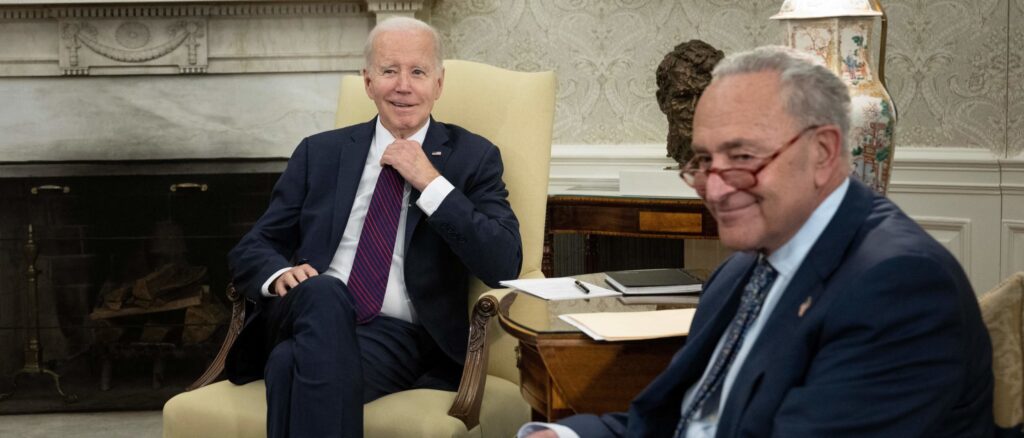The Senate passed the Fiscal Responsibility Act Thursday night, sending the debt ceiling hike to President Joe Biden’s desk.
Seventeen Republicans joined 46 Democrats to suspend the debt ceiling into January 2025, allowing the federal government to avoid a default on its debt less than one week before a June 5 deadline. Negotiated between Biden and Speaker of the House Kevin McCarthy, the Fiscal Responsibility Act passed the House on Wednesday with more than two-third’s support from both Republicans and Democrats. (RELATED: The House Just Passed The Fiscal Responsibility Act. Here’s What’s In It)
NEWS: 63-36, Senate gives final approval of a bill to suspend the debt limit until January 2025, ending a tense several weeks in Washington and a bitter partisan standoff that ultimately ended with a McCarthy-Biden deal that faced bipartisan support and opposition in both houses.
— Manu Raju (@mkraju) June 2, 2023
Before final passage, senators voted down eleven amendments to the legislation addressing permitting reform, defense spending, and other provisions of the legislation. Majority Leader Chuck Schumer and Minority Leader Mitch McConnell agreed to a 60-vote threshold for eight of the amendments, with the goal of preventing any of them from passing. Had any of the amendments passed, the entire legislation would have been sent back to the House and put the Treasury in danger of defaulting.
Several senators agreed not to hold up the legislation in exchange for their votes on amendments. Republican Kentucky Sen. Rand Paul, f0r instance, previously considered objecting to a speedy passage, but later told CBS News that he would not do so in exchange for a vote on his alternate debt ceiling proposal. Paul’s amendment failed 21-75.
“The way the Senate works is I could” delay the bill, Paul said Wednesday. “We could stretch this until next Monday or Tuesday if we employ all of the parliamentary tactics. Part of negotiating for an amendment vote is, they don’t have to give me a vote. The majority has to agree to this. And so we say, well we’ll grant back the time. We’ll allow the time to be compressed so it can in all likelihood be voted on and passed tomorrow if you’ll allow us to have a vote for our constituency.”


